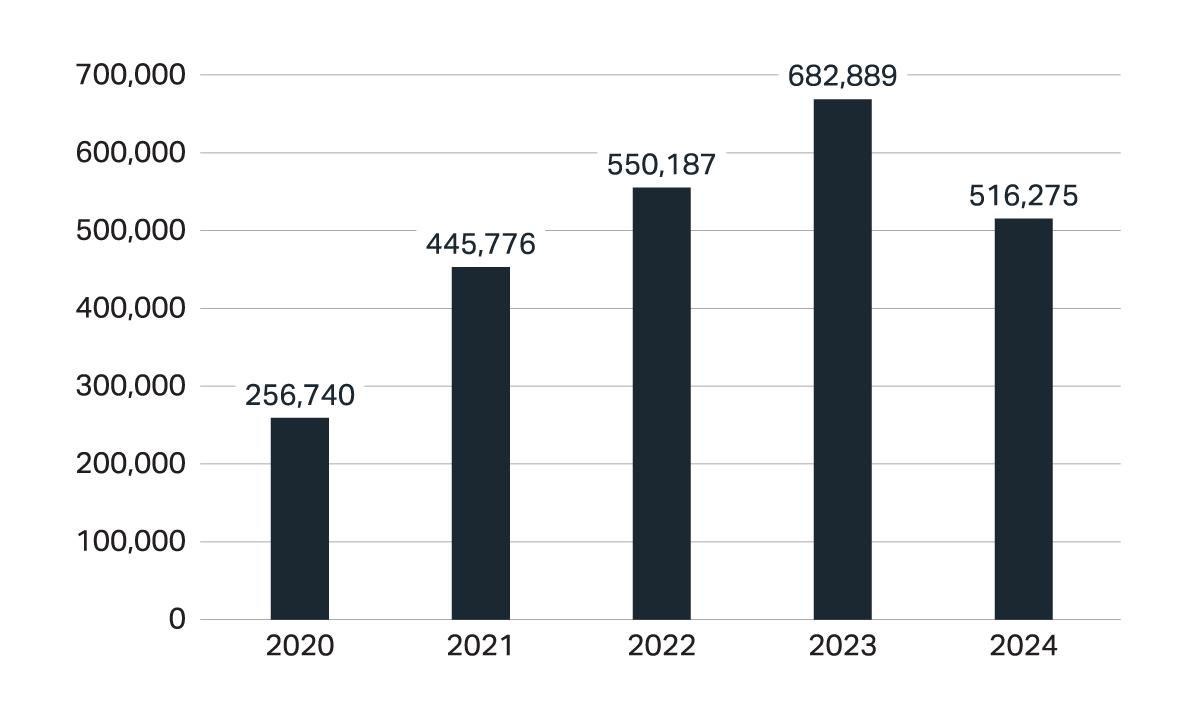Tougher immigration rules encourage vulnerable migrants to seek advice from visa advisors many of whom may be frauds: story by Africanews
The Francophone visa scheme is corrupted.
Canada first launched the Francophone Mobility Scheme in 2019, intending to ensure the survival of the country’s minority language by increasing the number of French-speaking immigrants.
Following the program's expansion in 2023, officials anticipate that nearly 80,000 French-speaking residents from Africa will migrate to Canada by 2027, according to data from Immigration, Refugees and Citizenship Canada (IRCC).
Criminals are taking advantage of the new gateway. With the promise of guaranteed visas in record time, scammers lure victims in with online ads under the pretence of being specialised immigration consultants.
Some victims report being charged upwards of $15,000 before the perpetrator disappeared into thin air, according to RFI.
Role of the CICC and provincial/territorial law societies and how applicants can find an authorized
representative
With respect to protecting the public, licensed immigration representatives in Canada are
regulated by either the College of Immigration and Citizenship Consultants (“CICC”) or the
provincial/territorial law societies of Canada.
The CICC licenses and regulates the practice of
Regulated Canadian Immigration Consultants (RCICs) and Regulated International Student
Immigration Advisors (RISIAs) in the public interest.
The 14 law societies in Canada are mandated
by each province and territory to regulate their lawyers and the legal profession.
Among their responsibilities, the CICC and the provincial/territorial law societies are mandated
to uphold and protect the public interest in the delivery of immigration related legal services.
Law Society Websites:
● Law Society of British Columbia: https://www.lawsociety.bc.ca/
● Law Society of Albera: https://www.lawsociety.ab.ca/
● Law Society of Saskatchewan: https://www.lawsociety.sk.ca/
● Law Society of Manitoba: https://www.lawsociety.mb.ca/
● Law Society of Ontario: https://lso.ca/home?lang=en-ca
● Barreau du Quebec: https://www.barreau.qc.ca/en/
● Chambre des notaries de Quebec: https://www.cnq.org/en/
● Law Society of New Brunswick: https://lawsociety-barreau.nb.ca/en
● Nova Scotia Barrister’s Society: https://nsbs.org/
● Law Society of Prince Edward Island: https://lawsocietypei.ca/
● Law Society of Newfoundland and Labrador: https://lsnl.ca/
● Law Society of Yukon: https://lawsocietyyukon.com/
● Law Society of Northwest Territories: https://lawsociety.nt.ca/
● Law Society of Nunavut: https://www.lawsociety.nu.ca/

